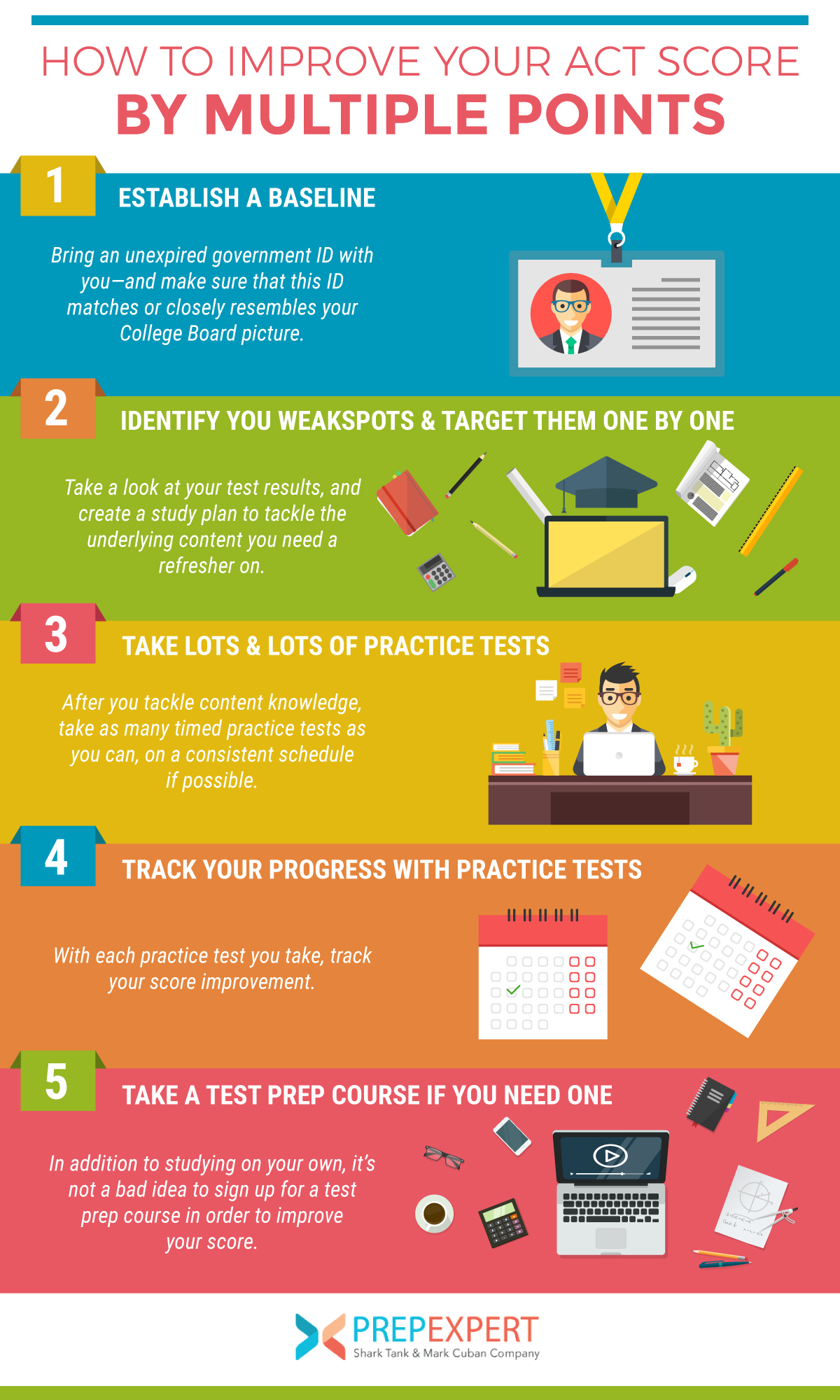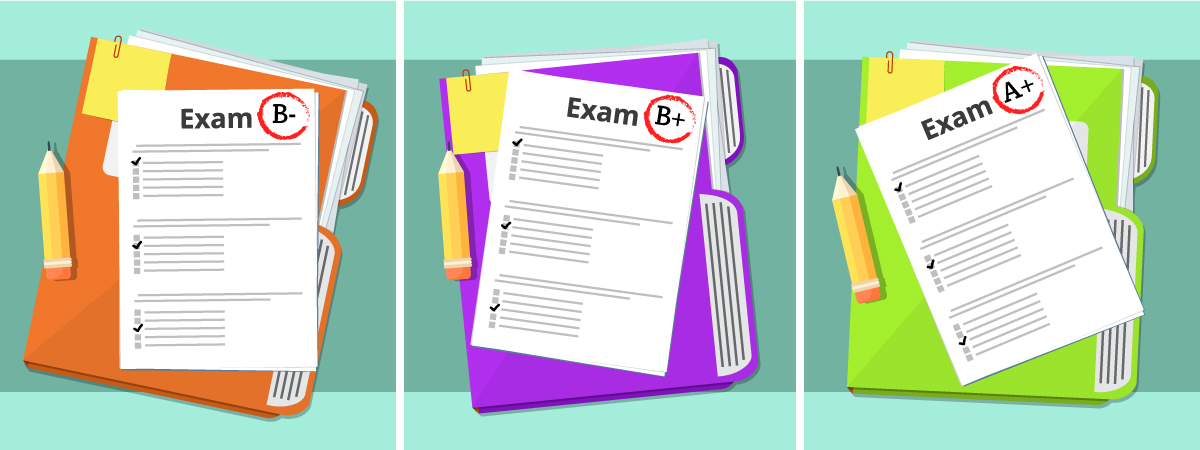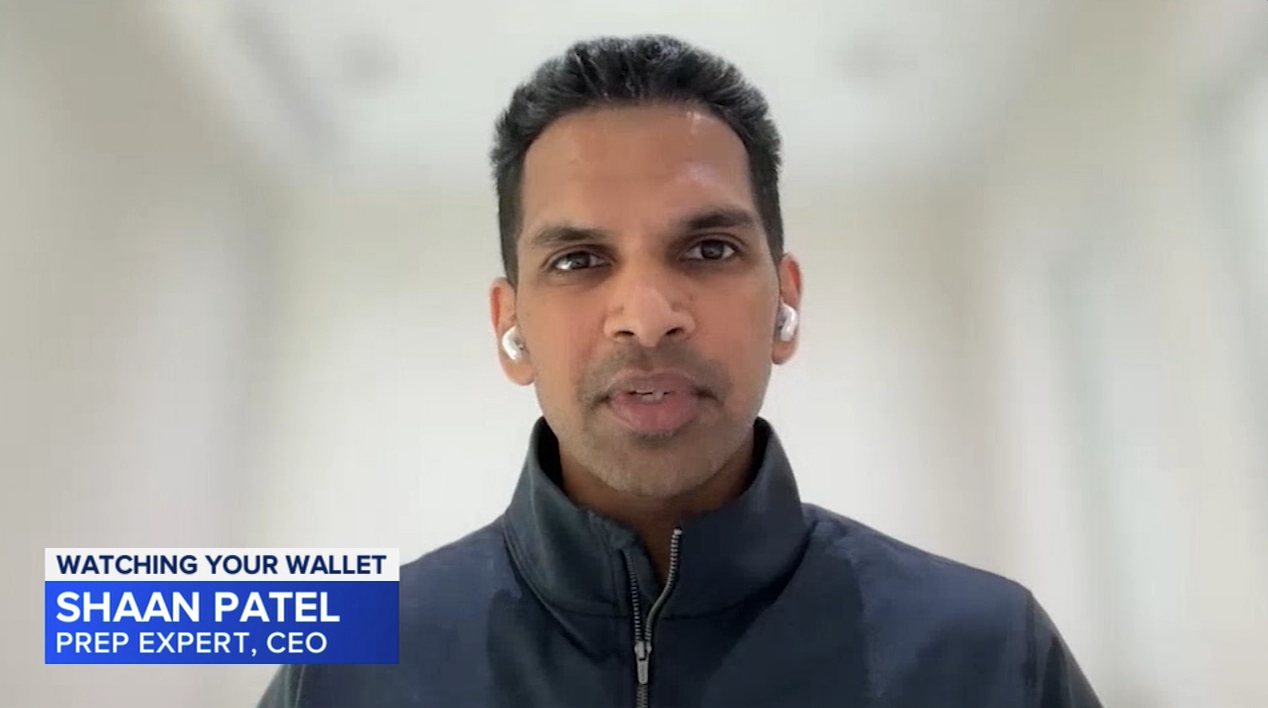How To Improve Your ACT Score By Multiple Points
You’ve taken an ACT practice test or sat for the real thing, and you’re either unhappy with your score or simply aspire to a higher one.
Simply put, how much better can you do on the ACT?
With determination and lots of studying, there’s no limit to how much you can improve your ACT score. More than almost any other standardized test, the ACT rewards hard work over natural-born intelligence.
This means one of our ACT prep courses can be a real game-changer en route to an improved score.
[act_one]
But that’s for another day. Let’s crack open the textbooks and get ready for the long haul—that perfect 36 can be yours if you want it enough and are willing to earn it!

Establish a Baseline
Take a practice ACT and score it so you know where you’re starting from.
The absolute first thing to do to improve your ACT score is to take a test to establish a baseline score. Maybe you’ve already done this. If so, then great. You’ve already taken care of this step.
But, if you haven’t ever taken the ACT, then print off one of the practice tests from the ACT website and take it at home, under test-day conditions—that is, timed and in one sitting, and in a quiet place, free of distractions.
You need to take the practice test in conditions similar to test day in order to get a true read on how you’d do if you took the exam today. If you take it at a leisurely pace, or in your kitchen with your mom and siblings and dogs and all sorts of other distractions, you’re not going to get an accurate score.
More importantly, you won’t really know how much you need to or can improve. So take this advice seriously. After you’ve completed the practice test, use the score charts and scale provided by the ACT to see how you’d score if you took the test today.
Don’t be discouraged if your score is low or isn’t what you’d hoped it would be. At this point, if you’re taking the test for the first time, you probably haven’t done much studying or preparation. So feel good that you’re looking at your floor, not your ceiling. Your score is only going to go up from here.
[leadmagnet_five]
And if you score really high—great! Pat yourself on the back for a second or two, and then get back to work. Just because you score well on your first practice test doesn’t mean your work is done. Even if you score a 34, with studying you can surely bump up to a perfect score. At the very least, more practice will give you the confidence to score that 34 on test day.

Identify Your Weak Spots & Target Them One By One
Take a look at your test results, and create a study plan to tackle the underlying content you need a refresher on.
Now that you know your initial score, dive further into your results and see what types of questions you got wrong, section by section. You’ll most likely notice a pattern.
For example, on the English test, maybe you got a few questions about colons or paragraph organization wrong. On the Math test, maybe you didn’t know as much trigonometry as you thought you did. Vocab might have proved difficult on the Reading test, and you read a few line graphs wrong on the Science test. And so on.
Make a list of these things. This list is what you need to study in order to improve your score.
Now that you have your list, tackle these areas of weakness one by one. For this content knowledge, you might want to go back to your school textbooks for refreshers on things like grammar or geometry. You can go to your teacher and ask for extra help with your weak spots.
Or you can create a study group and work on boning up on these topics with classmates in the same spot. Don’t stop until you feel confident you’ve got a good command of the material.

Take Lots & Lots Of Practice Tests
After you tackle content knowledge, take as many timed practice tests as you can, on a consistent schedule if possible.
With any standardized test, the ACT included, you not only have to learn the content the test covers, but also the test itself. Repeated exposure to practice tests will condition you to notice things like trap answers, or the quickest way to solve complicated math problems.
I often say that taking the ACT is like running a marathon. This is no truer than when it comes to learning the test—it will take you lots and lots of practice to become comfortable enough with the wording and format of the test to instinctively know how to select the answers the test makers are looking for normally.
In order to facilitate these practice tests, you should set aside time in your schedule every week from now until you take the test for ACT prep. Make the ACT one of your top priorities, after your schoolwork.
It helps if you study on the same days and at the same times every week, so you have some predictability and regularity in your studies. But if you can’t do this, just fit in practice tests whenever you can.
[act_two]

Track Your Progress With Practice Tests
With each practice test you take, track your score improvement. Don’t get discouraged if you stagnate or backslide every once in a while.
Every time you take a practice test, score it in order to track your improvement. You should also continue to keep note of the types of questions you get wrong, so you can keep improving your content knowledge where needed. If you’ve been working hard, you’re bound to see healthy improvements all along the way.
[leadmagnet_two]
Keep in mind, though, that after an initial jump in your score, your progress might slow down a bit. If you hadn’t ever studied for or taken the ACT before, your score on the second test you take, after studying, is likely to be a lot higher.
But after you’re relatively familiar with the test and have tackled the low-hanging fruit of the gaps in your content knowledge, your score increases are likely to be much more modest from practice test to practice test. All score increases, large or small, add up over time and will get you closer and closer to that shiny 36.
You should also be prepared for the possibility that your score will go down or fail to improve every now and then. This could be because you are having an off day—tired, anxious, overworked—or you happened to encounter a test with Reading or Science passages that were tougher for you than usual.
This is another typical part of the test-prep process, so don’t let it discourage you and keep studying. Even if your score dips or stagnates for a while, if you continue plugging away you will eventually see your score start to improve again.
Of course, if you’re already scoring near the top, keep in mind that getting even one question wrong might prove the difference between a 34 and a perfect score. You can’t expect perfection every time, so don’t let a question wrong here or there convince you that you’re doing something wrong.

Take A Test Prep Course If You Need To
In addition to studying on your own, it’s not a bad idea to sign up for a test prep course in order to improve your score.
Along with helping you learn the content the test covers, a program like Prep Expert® will also share proprietary strategies and tips for doing better on the exam. As I mentioned before, you have to know the content, but you also have to know the test itself, and this is where test prep courses provide their best value.
Prep Expert® ACT courses and one-on-one tutoring are available, both in-person and online, with talented instructors who scored in the 99th percentile on the ACT. These classes run year-round, at several different times during the week.
Online classes can also be taken On Demand, in case you can’t fit a class into your already-busy schedule. Classes also offer weekly practice tests, so you can continue to track your progress as you complete your homework assignments.
I have plenty of stories of students who started with low scores and ended up getting 36s. Some of them were brilliant, and valedictorians. But many of them were students who initially struggled with the test.
The one thing they all had in common? They were all incredibly hard workers and they studied consistently and intensively until they reached the score they wanted. So I know from personal experience that you can get the score you want if you’re willing to work for it. The sky—or, rather, a 36—is the limit, so get studying and good luck!
[act_three]
For more test strategy, college admissions, and scholarship application tips sign up for our FREE class happening right now!
How To Improve Your ACT Score By Multiple Points FAQ
What’s the first thing I should do to improve my ACT score?
The absolute first thing to do to improve your ACT score is to take a test to establish a baseline score.
What’s the second step in improving my ACT score?
Now that you know your baseline score, dive further into your results and see what types of questions you got wrong, section by section. You’ll most likely notice a pattern.
What’s the best strategy for checking my improvement?
With any standardized test, the ACT included, you not only have to learn the content the test covers, but also the test itself. Repeated exposure to practice tests will condition you to notice things like trap answers, or the quickest way to solve complicated math problems.
Will I see constant score improvement?
After you’re relatively familiar with the test and have tackled the low-hanging fruit of the gaps in your content knowledge, your score increases are likely to be much more modest from practice test to practice test.
Written by Dr. Shaan Patel MD MBA
Prep Expert Founder & CEO
Shark Tank Winner, Perfect SAT Scorer, Dermatologist, & #1 Bestselling AuthorMore from Dr. Shaan Patel MD MBA

The Student Loan Rules Just Changed—And Most Families Aren’t Ready
By Dr. Shaan Patel, CEO & Founder of Prep Expert® Student loans have always been complicated. But starting in…

Confidence Is the Hidden Score Booster No One Talks About
Most students think SAT® and ACT® success comes down to knowing more math formulas or grammar rules. That’s only half…

What Kind of SAT Score Gives You a Good Chance at a Scholarship in 2026?
As more colleges remain test optional, students often assume standardized test scores no longer matter for scholarships– but that’s a…